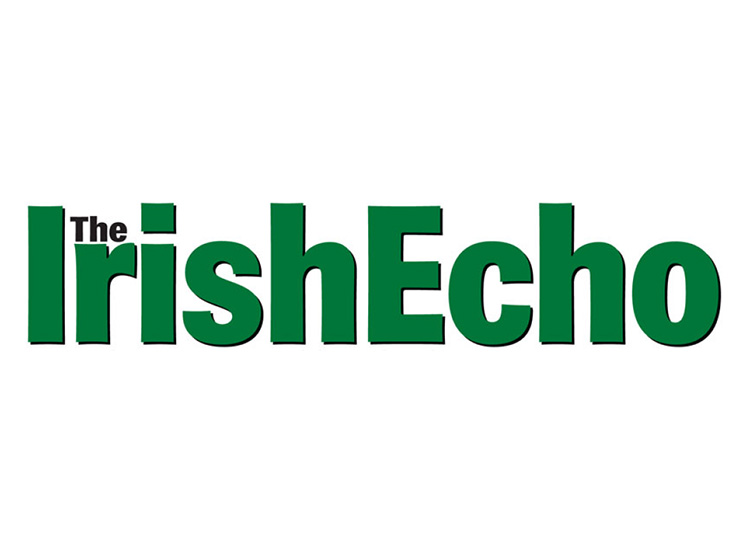Irish Finance Minister Paschal Donohoe. RollingNews.ie photo
By Irish Echo Staff
Ireland is a standout this week as one of three EU countries, and nine global nations in total, that did not sign an agreement to reform the global corporate tax regime.
The deal, signed by 130 countries including the United States at a gathering hosted by the Paris-based Organization for Economic Cooperation and Development (OECD), aims in part to secure a global minimum effective tax rate of 15 percent for major corporations.
Ireland's corporate tax rate is 12.5 percent.
The OECD announced that 130 of the 139 countries involved in the talks had signed up to the outlines of what would be an historic agreement, due to be concluded by October, the Irish Times reported.
Ireland was one of the three EU holdouts, the other two being Hungary and Estonia.
Reported the Times: "The Minister for Finance Paschal Donohoe said he is 'absolutely committed to the process of reforming the global corporate tax regime and will work with OECD countries to find an outcome that Ireland could support.
"Under the plan, countries will be able to tax the profits of large companies in markets where they are earned regardless of whether they have a physical presence there, while a global minimum tax rate of at least 15 percent will be set."
The OECD said the plan will ensure that multinational enterprises pay a fair share of tax wherever they operate.
According to an RTE report, the agreed statement represents a significant development in a long reform process that has been led by the OECD over the past two years and has involved 139 states.
Nine countries, including Ireland, Estonia and Hungary, that had been part of the discussions have not yet signed up to plan, the OECD said in a statement.
But those that have represent ninety percent of global GDP, and include the U.S., China, the UK, France and Germany.
"The remaining elements of the framework, including the implementation plan, will be finalized in October," the OECD said.
According to the RTE report, Minister Donohoe had previously said that the government wanted to be part of any agreement on global corporation tax reform.
Ireland stands to lose up to €2.4 billion in tax revenue over the next four years as a result of the proposed changes.
The OECD said a so-called two-pillar package would ensure large firms pay tax where they operate and earn profits while also adding certainty and stability to the global tax system.
The minimum tax rate of at least 15 percent, agreed under pillar two, is expected to yield up to $150 billion in additional revenue every year, the OECD said.
Added the RTE report: "However, the Irish Government had been resistant to the setting of a global minimum tax rate above its current 12.5% rate because it could take away its competitive edge for foreign direct investment.
But the OECD has claimed that the plan would provide much needed revenue for governments, as well as yield stability in the international tax system and increase tax certainty for taxpayers and administrators. It is hoped the plan will be ready for implementation in 2023.
In a statement, the Department of Finance said that Ireland "broadly supports" the OECD framework.
The department said that Ireland expressed "broad support" for the agreement but noted reservation about the proposal for a global minimum effective tax rate of at least 15 percent.
"As a result of this reservation, Ireland is not in a position to join the consensus," the statement read.
Minister Donohoe said that Ireland will "constructively engage" in further discussions and technical work over the coming months.
"I have consistently spoken of my desire for a comprehensive, sustainable and equitable agreement on the international tax rules at the OECD that meet the needs of all countries, large and small, developed and developing," he said.
"I was not in a position to join the consensus on the agreement and specifically a global minimum effective tax rate of ‘at least fifteen percent' today.
"I have expressed Ireland’s reservation, but remain committed to the process and aim to find an outcome that Ireland can yet support. Ireland will continue to play our part in reaching a comprehensive and, indeed, historic agreement," he said.
The minister later told a press conference that a public consultation on the plan would now be launched with a view to gathering views ahead of the finalization of the plan in October.
Asked about the potential reputational risk of Ireland not signing up from the start, Mr. Donohoe said it will only be possible to form a view on the effects of being in the agreement, or not, when the point of implementation is reached.
He separately stated to Newstalk Radio: “This is a matter of national sensitivity to Ireland and there wasn’t enough clarity and enough recognition of a key issue for us in the text that was presented to me."
But adding a note of optimism Donohoe said he believes “there will be an agreement later on this year that will then be implemented by the European Union.”
The nine countries that did not sign the agreement were Ireland, Estonia, Hungary, Peru, Barbados, Saint Vincent and the Grenadines, Sri Lanka, Nigeria and Kenya.








